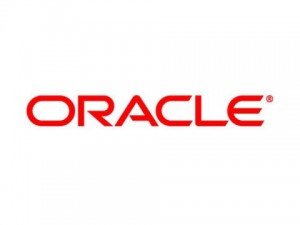 Oracle is also expected to disclose similar partnerships with NetSuite and Salesforce.com sometime this week
Oracle is also expected to disclose similar partnerships with NetSuite and Salesforce.com sometime this week
Oracle is set to announce an alliance with long-time rival Microsoft under which Microsoft will use the Oracle Database 12c as part of its cloud offerings.
The two companies will soon divulge details of the alliance that Larry Ellison, CEO, Oracle hinted at last week during the company’s fourth-quarter earnings call.
Industry observers say the unlikely Oracle-Microsoft partnership may be the result of Microsoft running into scalability limitations with its own SQL Server database running on Windows—scalability issues that have come to light as customers move more processing workloads to the cloud.
Oracle is also expected to announce similar partnerships with cloud software vendors Salesforce.com and NetSuite sometime this week.
“We will be announcing technology partnerships with the most important, the largest and most important SaaS companies and infrastructure companies in the cloud,” Ellison said on the earnings call. “And they will be using our technology, committing to our technology for years to come. That’s how important we are doing 12c. We think 12c will be the foundation of a modern cloud where you get multitenant applications with a high degree of security and a high degree of efficiency; you at least have to sacrifice one for the other.”
“Again, I would call them a startling series of announcements with companies like Saleforce.com, NetSuite, Microsoft. All that happens next week, we will be giving you the details. These partnerships in the cloud I think will reshape the cloud and reshape the perception of Oracle Technology in the cloud. [Oracle Database] 12c, in other words, is the most important technology we have ever developed for this new generation of cloud security.”
Oracle debuted Oracle Database 12c at Oracle OpenWorld in October. Oracle has not specified a date for its general availability other than to say it will ship sometime this year.
It’s not unprecedented for Oracle rivals to support the company’s database, given that it’s pretty much an industry standard for enterprise computing. SAP, despite competing fiercely with Oracle on the applications side, develops its SAP Business Suite applications to support the Oracle database.
But even Oracle’s relational database is coming under competitive pressure from a new generation of databases, including NoSQL (for “Not Only SQL”) databases, that are designed to better handle the big data challenges that businesses find themselves wrestling with, such as the ability to process combinations of structured and unstructured data.
Oracle’s goal could be to maintain its market dominance by embedding its database in the cloud infrastructure “stacks” of as many leading software-as-a-service and infrastructure-as-a-service vendors as possible.
For Microsoft, the alliance provides a way to address the scalability problems it faces with SQL Server running in the cloud, said a research note from analyst Holger Mueller at Constellation Research. “Ever wondered why the Microsoft enterprise applications only had a SMB focus?” Holger said in the note. “And why Microsoft ran internally on SAP?”
The alliance will have technical hurdles to overcome. Oracle, for example, will have to develop support for Microsoft’s Hyper-V virtualization technology, Holger noted. Right now, Oracle offers its own Oracle VM technology with its database software.
The alliance is good news for both Microsoft and Oracle channel partners, Holger said. “For a Microsoft partner, this makes your business more viable in areas where before the sizing teams would have cringed and where the hardware cost could have been prohibitive. For the Oracle database partners this expands the addressable market. And for ISVs in general this is great news—as you may now have the choice to develop in Java or C#—with the latter no longer being limi





